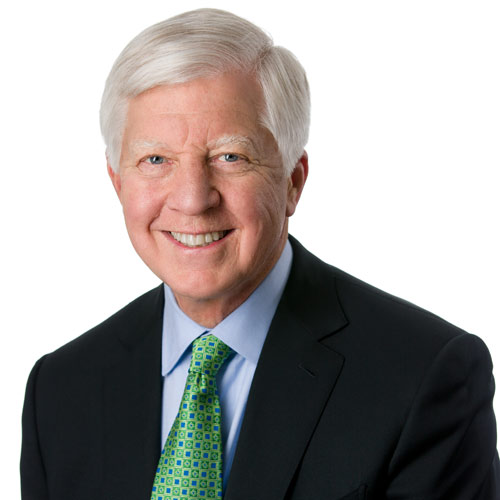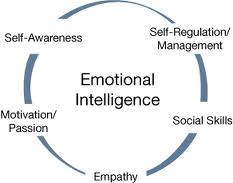
How to Convey Authentic Leadership in MBA Essays and Interviews
Many aspiring business school applicants wonder how to present themselves as authentic leaders before an admissions committee. They worry they don’t have a fancy title, they don’t have direct reports, or they haven’t thrown themselves in front of a land mine to save their fellow soldiers. Those are great examples, but there are thousands of students who are admitted to top programs who have none of those attributes, and easily viewed as leaders by their communities.
I’ve encouraged people to look at Daniel Goleman’s classic article about emotional intelligence, “What Makes a Leader;” it is a helpful framework. In so many words, MBA admissions officers are coming out and saying that they look for emotional intelligence in a candidate.
 Still, it’s hard to apply the principles directly. It’s not that believable to say, “I’m a great leader because of my empathy.” Bill George, professor of management practice at the Harvard Business School, focuses on “authentic leadership,” has been writing about this topic for over a decade, and articulately revisited the basic tenets in a recent article, “Authentic Leadership Rediscovered.”
Still, it’s hard to apply the principles directly. It’s not that believable to say, “I’m a great leader because of my empathy.” Bill George, professor of management practice at the Harvard Business School, focuses on “authentic leadership,” has been writing about this topic for over a decade, and articulately revisited the basic tenets in a recent article, “Authentic Leadership Rediscovered.”
Here are my takeaways from that article that will help you with interviews, and writing your essays or personal statement
- Authentic leadership is based on your own life story. According to George, authentic leaders incorporate their personal stories. That means talking about where you come from and showing some vulnerability. It doesn’t mean that you need to hang out all your personal secrets, but it does mean that you don’t want to be bulletproof, for example, in the answers to Stanford’s “What is Most Important to You and Why,” the HBS “Introduce Yourself” prompt, and Columbia’s “Pleasantly Surprised” essay (specifically referring to CBS Matters).
- Authentic leaders embrace failure. Bill George calls it a “crucible moment,” and we’ve all had them. Business school essay prompts aren’t focusing on failure as much as they used to, but they are looking for change and growth from being tested. Kellogg, for example, in one essay asks you about challenges you faced, and in another asked you how you have grown in the past. Again, this doesn’t mean you have to write only about how you’ve crashed and burned, and risen like a phoenix, but it does mean that you want to show some resilience as well as a sense of humor about yourself.
- Authentic leaders are not perfect. Nor do they know everything. One of the things business school teaches us is how to make better decisions. One of the ways to do that is to ask for help. In most business school essays which ask for an accomplishment, such as MIT Sloan’s “Tell us about a recent success,” because you can’t know or do everything, it’s likely you asked for support, and in doing so, you had to convince others to join your cause.
- Authentic leaders support and develop others. Look at the principles of Team Fuqua, in particular, “supportive ambition… because your success is my success.” This is wedded into Tuck’s definition of leadership, “helping others achieve great things.” And UCLA Anderson’s focus on shared success gets at the same idea. To quote Bill George from his book, True North. Only when leaders stop focusing on their personal ego needs are they able to develop other leaders”
Bill George is not the only management guru who focuses on character-driven leadership. Wharton’s Adam Grant, also takes a broad view of leadership, in his book “Give and Take” he shows that those who elevate others are more effective leaders than “takers.” Just look at the subtitle of his book, “Why Helping Others Drives Our Success.”
As you look for ways to illustrate your leadership, take a look at the current best-practice thinking on leadership. It’s surprisingly personal, and as a result, shouldn’t require you do gymnastics in your interviews or essays to demonstrate your leadership character.






